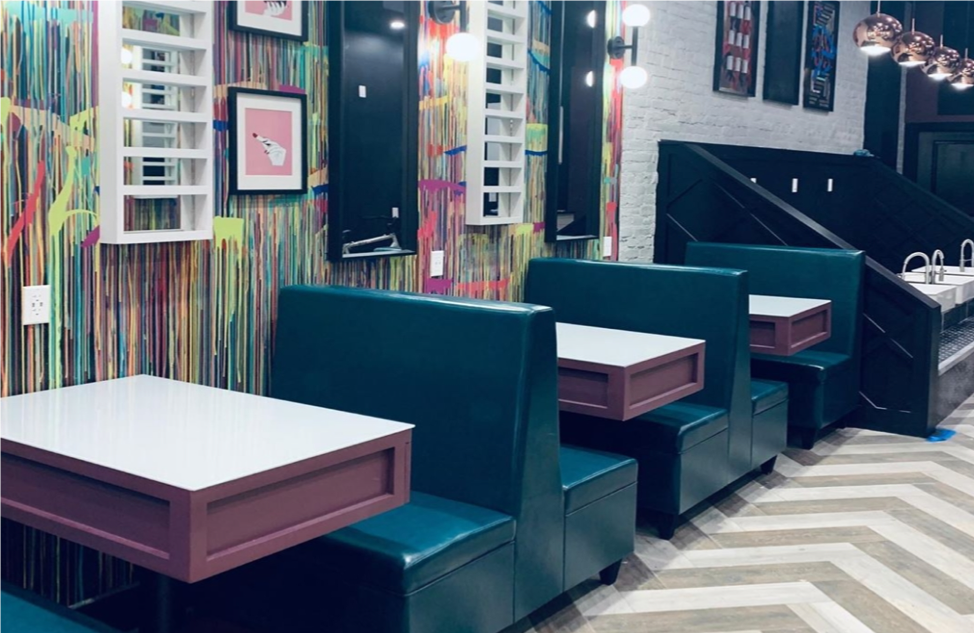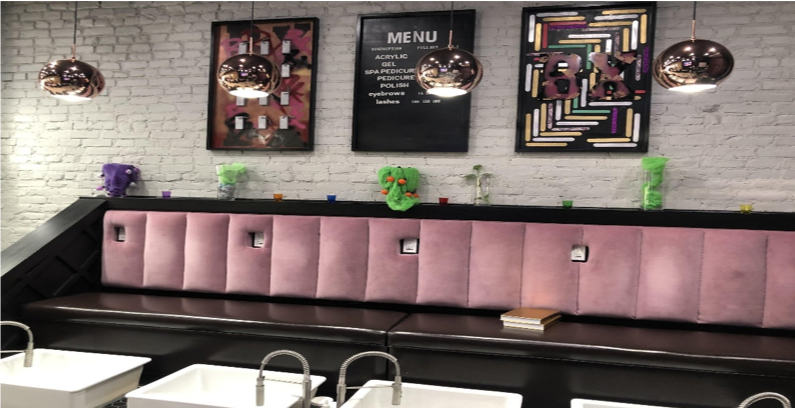Transition to Online Learning is Harder for Some Classes
Lehman’s technology center. (Photo Credit: Lehman’s Flickr account)
By Allen Mena
Since the Lehman campus closed on March 12, all faculty and staff have had to switch to online technology to provide distance learning and other services. As Lehmanites work to adapt to the new systems, some are facing greater challenges.
“The transition to online hasn’t been bad, but there are some technical difficulties that happen during classes that have to do with Zoom and Blackboard,” said Emmet O’Boy, a sophomore English major. O’Boy noted that keeping a stable connection to these platforms during online classes was his primary problem, along with apps having server-side problems and professors having poor Wi-Fi connections.
Muhamed Yasser, a sophomore computer science major, did not find online learning problematic. “I haven’t had many problems with the online format besides deadlines changing during the transition period,” he said.
Richie Castillo, a junior acting major, also found the transition workable. “Despite obstacles regarding the coronavirus, Lehman is still doing what they can,” he said. “I haven’t really had many challenges because I did not expect classes to even continue.”
However, undeclared sophomore, Rebekah Gamble had some frustrations with online learning. “My house is sometimes loud during classes and that can make it very hard to focus during lessons,” she said. “However, my overall experience has been good.”
Other students had less optimistic views on the transition and more trouble with online platforms.
Amy Figueroa, a sophomore communications and media studies major, said she has faced some difficulties with online classes. “Some difficulties that I have encountered during online learning is viewing the material,” she said. “Some of my professors are not prepared to use Zoom or Blackboard Collaborate. Sometimes it is very hard to view our class work or any material they have ready for class.”
“Some of my professors are not prepared to use Zoom or Blackboard Collaborate.”
Britney Delgado, an Anthropology, Biology, and Chemistry Major who is graduating in 2023, noted: “One difficulty that I’ve encountered is finding the motivation to complete classwork; ever since this shift to online classes, it feels as though our workload has significantly increased.”
Classes that have aspects that need to be conducted in the classroom are also struggling. Learning modes that require students to be physically in a classroom need to be adjusted to find compromises that enable convenient learning for students.
Music and Dance Departments students, for instance, are not able to dance in large enough rooms because they are confined to their homes.
“Distance and remote learning is new to me, and frankly, I feel completely out of my depth,” said Michael Manswell, a dance professor at Lehman. “However, I believe this situation presents an opportunity for me to practice and include distance learning in all my courses. The learning curve has been steep.”
“It has also underscored the fact we NEED to meet ‘in person’ for some courses to be truly successful. Some Dance, Music & Theater courses cannot be taught solely online,” said Manswell. He added that the Department’s main emphasis is, “to keep the class schedule as close to the planned one as possible for the sake and comfort of the students.”
Lehman Scholars Program is ‘The College Within the College’
By Allen Mena
“‘Real college’ gets lost in the chasing of grades and credits that often occurs in big name universities,” says Anna Purves, an English professor who teaches in the Lehman Scholars Program (LSP). Its purpose, she explains, “is to create the college within the college,” and provide a challenging experience for those students who are able to handle higher-level thinking and analysis, as opposed to rote memorization.
Only 20 students are allowed into the LSP program, which prides itself on “Socratic-style” seminars. This method originates from Socrates’ teaching method of posing open-ended questions and letting students answer them and gain knowledge from each other as well as him, as opposed to just him reciting information, according to Professor Gary Schwartz, Honors Director and head of the LSP program.
This is very different from typical lecture halls, where professors have to provide nearly all of the information with little input from students besides clear wrong or right answers. Seminars usually focus on unique topics and deal with questions that do not have a clear answer, and can be defended or refuted, depending on the given evidence.
“In a seminar, the emphasis is on the student’s ability to defend his or her point of view. That is where real debate starts and students learn from each other more than the professor,” Purves explains. “A seminar is not supposed to be a teacher pontificating. Instead it's a roundtable where conversation flows freely… There are supposed to be fewer than 18 students, and because of the small class size, everyone tends to participate more.”
LSP students also praised these benefits of the seminar.
“Smaller class sizes are a plus for me and the professors focus on every student as opposed to regular Lehman courses that I take,” said Moesha Williamson, a sophomore food and nutrition major in the LSP Program.
“I like how the small class sizes of the LSP courses allow for a better connection between peers and professors,” said Jensy Ross, a health and environmental science major of class of 2022 who is enrolled in both the LSP program and Macaulay Honors College. “For me, this creates better courses and better experiences from them.”
Schwartz agreed. “I think the seminar configuration is the most valuable way to communicate and learn and grow. We tend to encourage our fellow students when we are in smaller classrooms. It really promotes community and it’s a place where seeds are planted, and that is what seminar-style courses really entail. And so far, it worked.”
Students are admitted on a case-by-case basis, through a private interview, a review of the student’s GPA, and their extracurricular activities. Both high school and current Lehman students can apply but must have less than 60 credits.
Purves highlighted the holistic nature of the program. “We address the whole person and we have casual conversations that go outside the classroom,” she said. “It is important for students to have an outlet for conversations and staff to build personal relationships with. And when students get to have these conversations, they become more engrossed in their classes.”
Kingsbridge Nail Salon Offer Spa Experience Never Seen in the Neighborhood
By Allen Mena & Perla Tolentino
“Their design called my attention as I was passing by. It looks different than anything I've seen in this neighborhood,” said Johana Brea, a Bronx resident who works in Carman Hall, of Nail Drip, a Dominican family-owned nail salon that opened about three months ago on Kingsbridge Road. “It looks high-class, not something common around here; it’s interesting to see new things are coming to the Bronx,” she added.
Located on 61 East Kingsbridge Road, within Lehman’s vicinity, the salon offers spa-like services and an aesthetic room for waxing and other eyebrow embellishment services.
“This nail salon creates more jobs for young people in the area and the salon inspires young people to open up their own businesses,” said the salon’s owner and Bronx resident, Damaris Marcelino. “I believe that through effort and work everything is possible, even running a business like ours. I always think about the future in difficult moments.”
Lehman students also think highly of this new salon’s offerings.
Natalie Ramos, a 20-year-old Lehman psychology major who is also a fan of nail art said, “It’s different, fancy and pampering; they seem more clean, trustworthy and dedicated to their clients.”
“In my opinion this is wonderful: a new nail-spa that is innovative and implements new techniques that we have never experienced here in our neighborhood, said Diana Hernandez, 37, a sociology major and Lehman sophomore. “This is a refreshing new start for a business.”
“I find it very nice to see this kind of concept in the Bronx. I enjoy this new surge in customer service; especially because people think negatively about Bronxites. This shows that we can get quality service without having to go to Manhattan,” said Unequa Figueroa, a 26-year-old philosophy major and Lehman senior.
Beyond design and hard work, product quality also forms part of the salon’s mission.
“Our wax soothes the skin, preventing irritation, and it’s such a soft product that it peels-off itself. We can take it off with our hands. This makes us unique because not many places use it,” said Cristal Pena, wife of the owner and co-manager of the salon. “Our spa pedicure gel is made out of fruits and flower petals that help reduce foot odor and sweat.”
“I have been working with very high-end esthetics businesses since 2011, and what I really like about Nail Drip is that it feels like family. We are trying to bring high-end services to an area where people don’t visualize it as possible,” said Chrisal Martinez, 26, who works as the salon’s cosmetology specialist in charge of body waxing, keratin lash boosting and lifting, and eyebrow shaping.
Martinez, who holds a New York State cosmetology license, confirmed that facial services will be offered in 2020. The salon also plans to be the first in the area to digitize their services.
“We are preparing to make a difference in the nail salon industry,” explained Joel Marcelino, a digital design graduate of Westchester College and the younger son in the family who oversees the salon’s marketing. “We plan to launch an interactive website where customers can try on nail polishes and designs. When the customer makes a selection, their color choice will be sent to a technician who will assist them based on their needs.”
“I gave up a franchise to come help my family with the business. We want to bring relaxation to the community and drive off the attention from crimes and alcoholism. I dream to teach the importance of the economy to young people, to help them understand that a nine to five job won’t always be the dream career.”
Andrea Valles, a 30-year-old employee, complimented the store’s cleanliness and perks. “Hygiene is key here; this is one of the most comfortable places I’ve worked in. The service is excellent. We always offer our customers coffee, wine, water, and the best part is that it doesn’t come from your budget.”
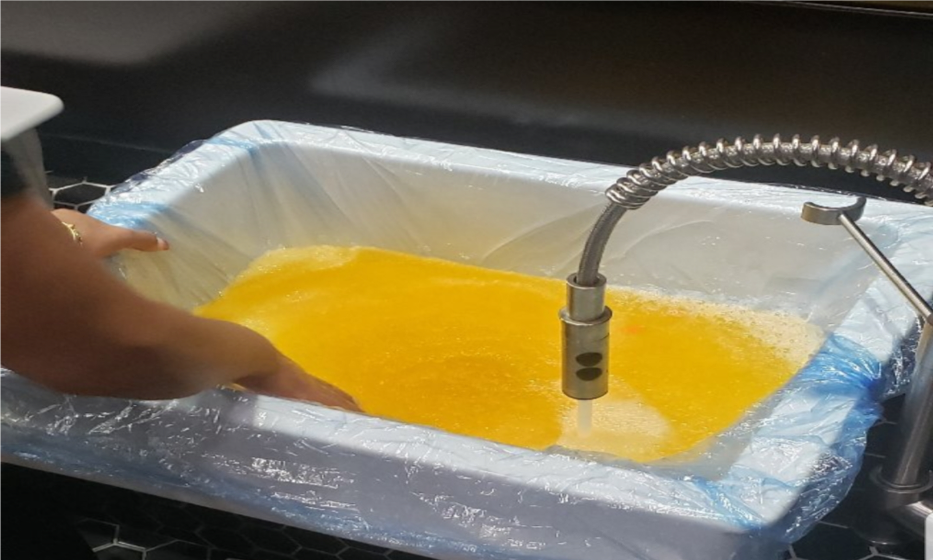
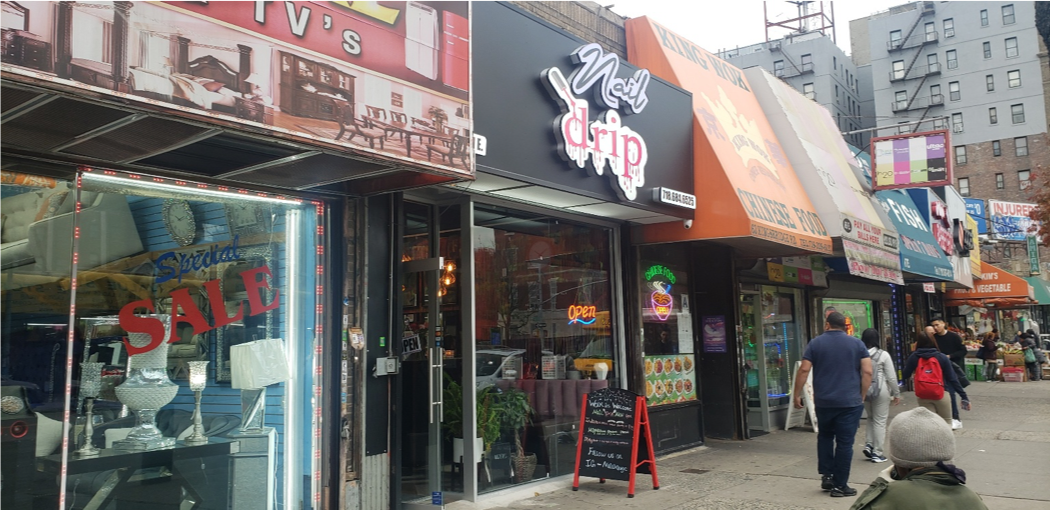
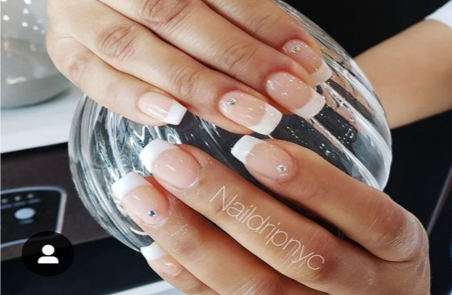

Shanae Casson, a 35-year-old Bronx resident, agreed. “I’ve been to all nail places in the neighborhood, but most are dirty and the staff is rude. At Nail Drip they always welcome me with a smile, and talk to me while doing my nails instead of rushing me out. I’m always served coffee, wine, juice or water. Their work is great and the prices all wonderful. I would always come here.”





